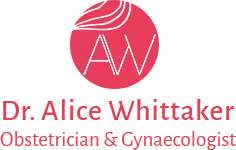Polycystic ovarian syndrome (PCOS) is a common endocrine disorder and one of the most common causes of infertility among women. It can also cause irregular or absent periods or extra hair growth or acne. It is characterised by abnormal ovulation, with the ovaries having a problem with the normal growth and release of eggs each month. The hormonal imbalance results in enlarged ovaries containing many very small follicles.
Causes of PCOS
The exact cause of polycystic ovarian syndrome is unknown. However, several factors including genetics have been implicated to play a role in the development of PCOS. Women with a family history of polycystic ovarian syndrome are at a higher risk of developing this condition. Researchers have also found an association between excessive insulin production and the development of PCOS. Insulin hormone regulates blood sugar levels and any disorder affecting the insulin mechanism may result in excessive insulin secretion, which triggers androgen secretion from the ovaries. Clinical studies have demonstrated the presence of low-grade inflammation in women with PCOS. Excessive exposure to the male hormone during the fetal period may disrupt the function of normal genes and increase the risk of insulin resistance and low-grade inflammation.
Symptoms of PCOS
The symptoms of polycystic ovarian syndrome vary from person to person and depend upon the nature and severity of the condition. Some of the symptoms of PCOS include infertility, absent or irregular menstrual cycle, and obesity or accumulation of fat usually around the waist. Abnormal facial and body hair, adult acne, and male pattern baldness or hair thinning may also develop due to excessive androgen secretion. In some patients, black or dark brown patches are seen around the skin of the neck, arm, breasts or thighs. There is an association with diabetes, cardiovascular disease, endometrial hyperplasia and cancer, as well as depression.
Diagnosis of PCOS
The diagnosis of polycystic ovarian syndrome is based on the medical history along with a physical and pelvic examination to evaluate the condition of the patient and help identify the underlying cause. Blood tests may be conducted to determine the level of various hormones. Additional tests such as a glucose tolerance test and evaluation of blood cholesterol may be necessary in these patients. Pelvic ultrasound may be performed to evaluate the appearance of the ovaries and the uterine lining. Having the finding of “polycystic ovaries” on ultrasound scan doesn’t necessarily mean you have PCOS – this may be a normal finding in some women. Having had several ovarian cysts (which can rupture and cause pain) over your life doesn’t mean you have PCOS either – the “cysts” in PCOS are much smaller.
Treatment of PCOS
The treatment of polycystic ovarian syndrome is based on the symptoms and individual concerns such as infertility, irregular menstrual cycle, acne or obesity.
Lifestyle Modification
PCOS is related to carrying extra body weight in some women, and for these women, this should be the initial target of therapy. Weight loss is often best achieved in conjunction with a dietician with a special interest in PCOS (please insert hyperlink to “associated practitioners”. An exercise physiologist may help also to get your exercise program on track. In addition, medications and surgical treatment can be used for the management of PCOS.
Infertility
Infertility may be treated by with ovulation-inducing drugs. Letrozole or clomiphene citrate may be prescribed to patients. In some patients, the doctor may add metformin to help induce ovulation. In patients not responding to these measures, gonadotropins, namely, follicle-stimulating hormone (FSH) and luteinising hormone (LH) can be administered by injection. IVF is not always necessary. Another treatment for infertility relating to PCOS is surgery - laparoscopic ovarian drilling.
Irregular Cycles
For women with PCOS, it can be risky to the lining of the womb to have less than 4 periods a year, (if they are not on hormonal medication to explain the lack of periods). Oral contraceptives may be prescribed for the management of irregular menstrual cycles. Oral contraceptives effectively reduce the level of male hormone and are also effective in reducing excessive body hair growth and also minimize the risks of uterine cancer. The progesterone releasing IUD (Mirena) (please insert hyperlink to this page of my site) may also be used to protect the lining of the womb.
Extra Hair/ Acne/ Hair Loss
Certain oral contraceptives can help to control this aspect of PCOS. Specific therapies for extra hair growth include creams (Vaniqa) or oral medications (Cyproterone or Spironolactone medications), as well as hair removal options including laser.
LINKS:
- “Ask PCOS”: App for information on PCOS – produced by Monash University
https://apps.apple.com/au/app/askpcos/id1395816147 - Information on PCOS in many languages:
https://www.jeanhailes.org.au/resources/pcos-multilingual-fact-sheets - Link to PCOS page on Jean Hailes Website:
https://www.jeanhailes.org.au/health-a-z/pcos - PCOS Fact Sheet
- Understanding PCOS Booklet
Get Adobe ReaderYou will need the Adobe Reader to view & print these documents.


